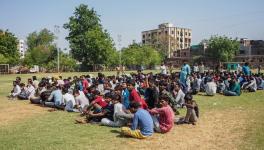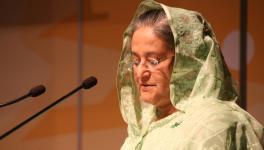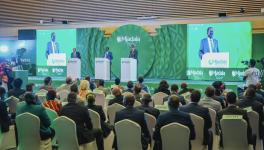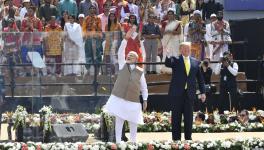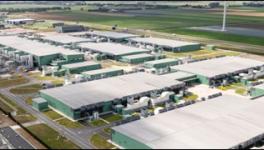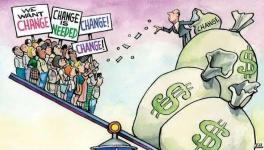Bangladesh: Unprecedented Increase in Fuel Prices Affects Transport, Protesters Condemn Move
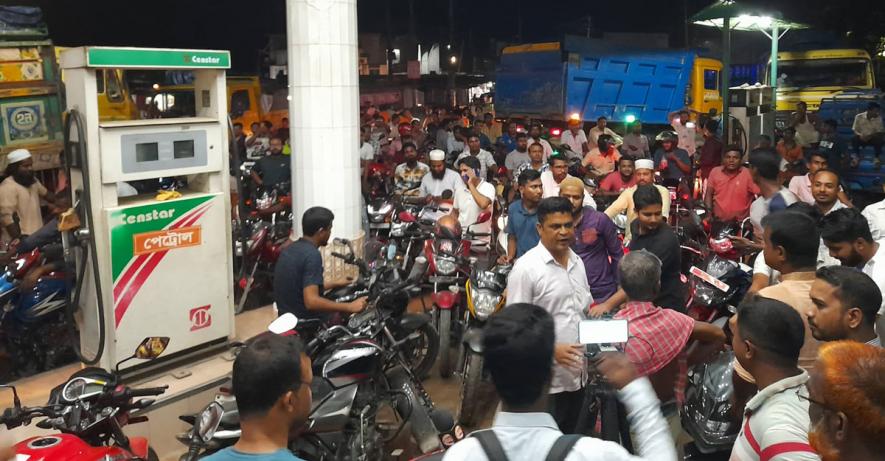
Owing to the hike in the prices of fuel in Bangladesh – taking them to an unprecedented level – the country is staring at large-scale protests and a transport crisis.
The prices of diesel and kerosene have been increased from Rs 80 to Rs 114 per litre. The price of petrol per litre has been increased from Rs 86 to Rs 130 and the octane price has been increased from Rs 89 to Rs 135. The rate of increase in diesel prices is about 42%, while that for petrol and octane is more than 50%. The increased prices have been effective from Saturday, August 6. This development was communicated in a press release by the Ministry of Power, Energy, and Mineral Resources on Friday.
State Minister for Power, Energy and Mineral Resources Nasrul Hamid said, “The government did not think about increasing the prices as long as it was possible. In view of the situation, there is a lot of uncertainty and some adjustments have to be made. If the situation is normal, the price of fuel oil will be revised accordingly.”
People working in the energy sector feel that after the price increase, the government's subsidy in the fuel oil sector will decrease at once. The government is under financial pressure and is trying to get a loan of $450 million from the International Monetary Fund (IMF). One of the conditions for the IMF loan is the withdrawal of subsidies in the energy sector. It is believed that the condition has been fulfilled by increasing the prices of fuel.
Meanwhile, the capital city of Dhaka has been witnessing a public transport crisis since Saturday morning. Public buses are no longer running in Chittagong, the country's largest port city. the frequency of the long-distance buses has increased; yet, there have been transport crises in many areas.
Long queues were seen at oil pumps in various parts of the country, including Dhaka, soon after the ministry announced the increase in fuel prices on Friday night. In many places, people reportedly picked up fights with the pump workers for not getting the fuel, as shortage has been reported from many districts.
Many motorcyclists blocked the Dhaka-Mymensingh highway due to the unavailability of fuel at the filling station in Gazipur's Sreepur after the announcement of the price hike on Friday. Traffic congestion was seen on several kilometres of the highway.
Transport owners have claimed that it is not possible to drive vehicles with the current fixed fare due to the increase in fuel prices, which has forced them to stop operating the buses.
Center for Policy Dialogue’s (CPD) research director, Khandaker Gholam Moazzem, told the media that the way the government has increased the prices of fuel oil – breaking the record of recent years – it will increase the overall cost of living to a large extent. “Mainly in the sectors where the use of diesel is more expansive, such as transport, agriculture, power generation and the manufacturing sector. The increase in production costs will result in an increase in the price of the product to the consumer,” he explained.
“The decision to increase the price of diesel to fulfil a condition for the loan negotiations with the lenders, we think, is not appropriate as it will impose costs on consumers,” he added.
In this context, the president of the Bangladesh Garment Owners' Association (BGMEA), Farooq Hasan, spoke about the possible consequences of the price hike. He said, "There is no electricity for 5-6 hours due to the shortage of gas in the factories, due to the load shedding ordered by the government. As a result, generators have to be used for six hours a day. As generator usage increases, more fuel oil has to be used. Now increase in the price of fuel oil is a big challenge for the garment sector. We have a lot of orders in hand. An additional cost will have to be paid to fulfil these orders.”
Many factories will have no choice but to close, according to Hasan. “The orders many are working on were taken two or three months ago. The production cost of these orders will now increase as well as that of the new orders. If the price of fuel increases, the transport fare also increases. The prices of goods will increase and inflation will increase. Along with these, the salary of the workers should also be increased. What other way could there be to avoid losses apart from closing down?” he questioned.
Meanwhile, the country is witnessing several protests against the decision. A protest march was held in the Shyamoli region of the capital. At this time, a police car was reportedly vandalised. Eyewitnesses said that after two o'clock in the afternoon, some angry people protested against the increase in the price of fuel in front of the Shyamoli Shishu Mela. The protesters then surrounded a police car passing through the road and vandalised it, they said.
Most of the opposition political parties including the Communist Party of Bangladesh (CPB), Workers Party, Bangladesh Samajtantrik Dal (BASAD), Gano Odhikar Parishad, and BNP held protests in different parts of the country on Saturday to protest against the fuel price hike.
Students’ Rights Council held a torch march on Friday night to mark their protest. Since Saturday morning, various students’ organisations including Chhatra Dal, Chhatra Union, and Samajtantrik Chhatra Front have also taken to the streets. The secretary general of BNP, the country's main opposition party, joined a protest programme organized by Chhatra Dal in front of the central office in Naya Paltan of the capital on Saturday.
Get the latest reports & analysis with people's perspective on Protests, movements & deep analytical videos, discussions of the current affairs in your Telegram app. Subscribe to NewsClick's Telegram channel & get Real-Time updates on stories, as they get published on our website.










